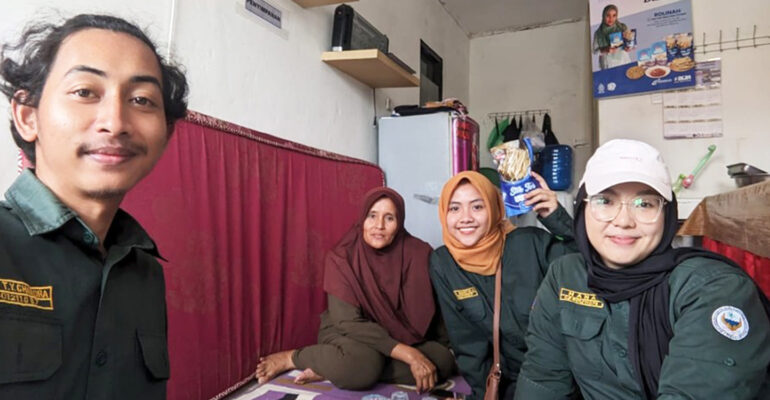The students of MSP Department of IPB University Underwent MBKM in Pasaran Island, Bandar Lampung

Students of the Department of Aquatic Resource Management (MSP) of IPB University has successfully run the Freedom of Learning – Independence Campus (MBKM) program on Pasaran Island, Bandar Lampung City.
The Chairman of the Department of MSP IPB University, Prof Hefni Effendi said that through this MBKM program, students not only apply the knowledge they have learned in lectures, but also make a real contribution to improving the welfare of the local community.
Taking place from October to December 2024, students implement several courses that are used as capstone to be applied directly in the community, especially Pasaran Island.
The courses include Aquatic Resource Management, Aquatic Resource Management Policy, Aquatic Environmental Risk and Impact, and Aquatic Ecotourism Management.
The MBKM program that was carried out by students of the MSP Department was aimed at analyzing the resource management and policies that run on Pasaran Island, as well as its relationship with the utilization of anchovy fisheries there.
“It is expected the students can implement the course well in order to produce maximum output,” said Prof Hefni in his statement.
In the Aquatic Resource Management course, students focus on the potential of aquatic resources on Pasaran Island. They studied the biodiversity and productivity of the waters there.
“Interviews were conducted with the local community to assess the potential of aquatic resources there. Interview topics include cultivation using floating net cages (KJA) and measuring water quality suitable for KJA cultivation,” explained Prof Hefni.
The availability of fishery resources studied is anchovy. Anchovy is the main catch in Pasaran Island. Prof Hefni said, appropriate management to preserve anchovy needs to be done as an intensive effort so that it can be sustainable.
Furthermore, in the course of Aquatic Resource Management Policy, a study was conducted in relation to policy, utilization, and anchovy industry in Pasaran Island.
“Data collection was carried out with a literature study on government regulations governing fisheries activities. In addition, direct surveys of the anchovy industry and interviews with fishermen and stakeholders were also conducted,” he concluded.
Meanwhile, the Aquatic Environmental Risks and Impacts course focuses more on the impact of the anchovy industry on the environment and the impact of anthropogenic activities on the anchovy fishing industry on Pasaran Island.
The management of fishery products in the form of salted fish drying on Pasaran Island will certainly produce impacts felt by the community, both positive and negative.
Prof Hefni said, “Therefore, further analysis is needed regarding the risks and impacts caused by anchovy drying activities and anthropogenic activities on anchovy fisheries,” he said.
Finally, the Aquatic Ecotourism Management course focuses on the potential of marine ecotourism on Pasaran Island and its surroundings. Pasir Timbul Beach is a destination located in the middle of the sea there. Its strategic location invites many tourists to come visit.
“It is necessary to analyze the feasibility of tourism to find out how feasible it is as a destination,” he explained.
The enthusiasm of the community and government, in this case the Regional Research Development and Innovation Planning Agency (Bapperida) can be seen from their active participation in every activity carried out.
“This shows how important the presence of students is in helping the development of the village. It is hoped that all activities that have been carried out will continue and have a positive impact on people’s lives, especially Pasaran Island,” concluded Prof Hefni. (*/Nr) (IAAS/ZQA)



